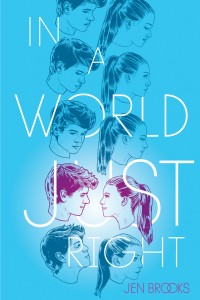MFA
Where I’m at Part 3: agent search for Wishstone
I finished Wishstone a few years ago as a fantasy novel set in ancient Greece. I pitched it to exactly one agent, an agent who many authors dream of calling theirs. She requested sample chapters and sent a personal, professional, and helpful rejection a couple of weeks later.
It was around this time that my husband and I were trying to have a child. I will not share the details of those years, but let it suffice to say there were a lot of doctors, procedures, hopes, and disappointments, disappointments, disappointments. It was all I could do to keep my teaching career (and myself) from falling apart. I did not write.
After (hooray!) my son was born (well, months laterI was pretty busy with him for a while), I decided to revisit Wishstone. By this time there had been a dramatic change in the world of young adult literature. I was still in touch with friends from the Writing Popular Fiction program. They knew that my stories centered on teenage protagonists, so they suggested Wishstone might be better suited for this expanding young adult market. I had serious doubts. First of all, it had been a huge leap for me to write a fantasy at all. Although the lines between science fiction and fantasy often blur and they require some similar skills, I had never been interested in writing about magic. Likewise I had always considered myself as a writer for people like myself, i.e. adults who had grown up immersed in a spec fic world. Writing for young adults requires a particular talent for resonating with people who have fewer years of life experience and interests/needs I have (mostly) outgrown. I did not think I could do it.
Then I read Kristin Cashore’s Graceling. (Kristin Cashore, if you ever read this, thank you for being the writer you are.) Graceling is marketed as young adult. The story addresses themes such as the use and abuse of power, personal responsibility, and redemption. It is a coming-of-age story to be sure, but it is not filled with the angst I associated with young adult literature. Reading Graceling made me think that maybe I could convert Wishstone.
I returned to Seton Hill’s Writing Popular Fiction program for a second degree. They converted their MA program to an MFA program, which interested me because it would give me an additional credential to seek a teaching position in higher education. I revised Wishstone as my MFA thesis by cutting the POV of the 42-year-old man and leaving the entire story, minus the prologue, in the POV of the 16-year-old girl. I also added a love story to replace the one I lost by refocusing the POV.
I’m in the process of submitting Wishstone right now. This summer I revisited Prosorinos to see if it could get the same YA conversion as Wishstone, but it’s complexity, I think, makes that impossible.
So, since I’m waiting to hear about Wishstone, I’ve started this website and have begun work on a completely new novel. I’ll keep you posted . . .
